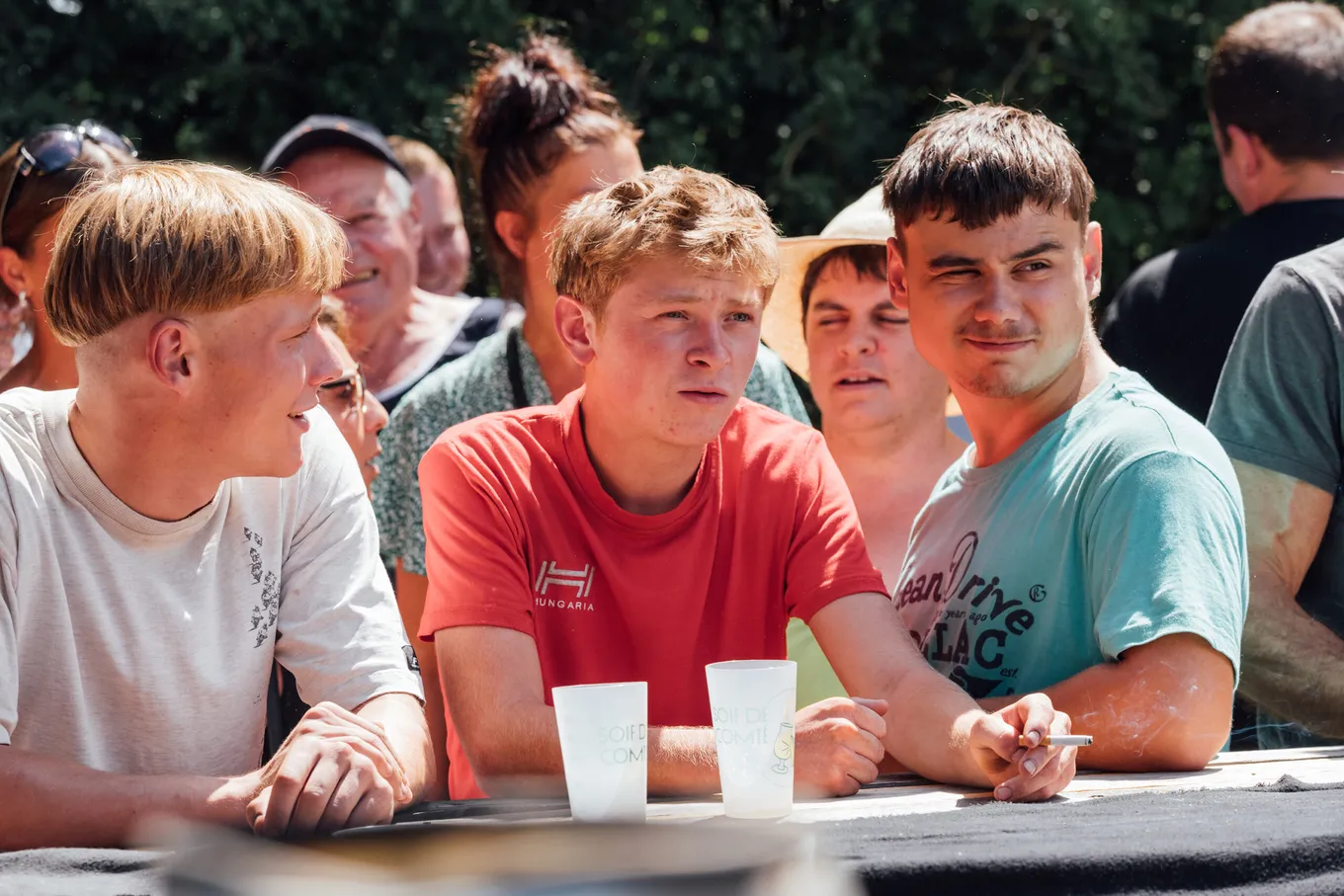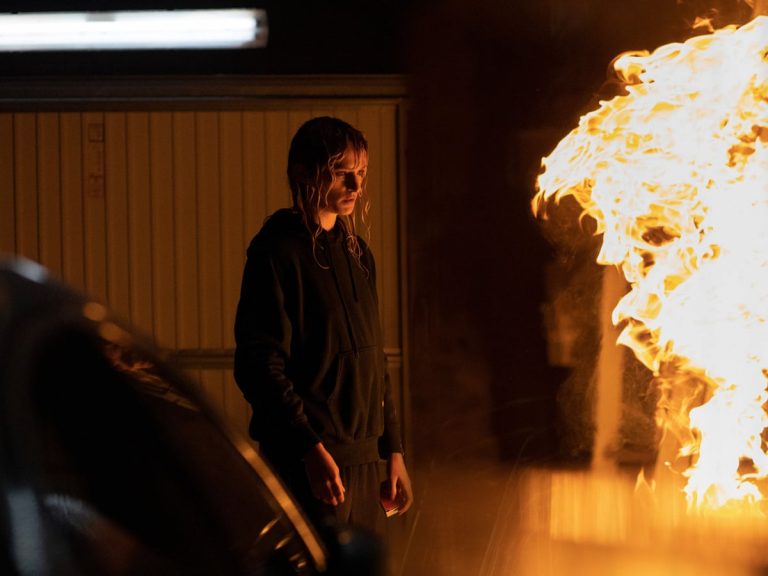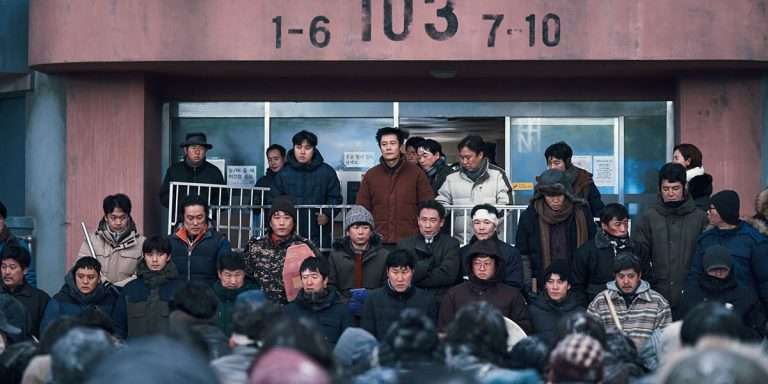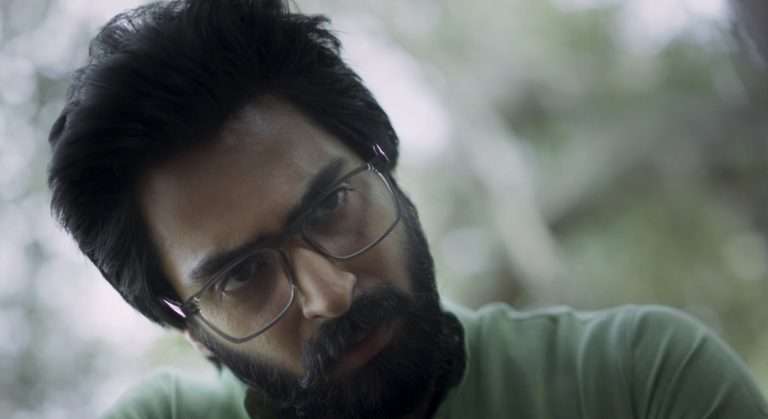In Louise Courvoisier’s “Holy Cow,” tragedy strikes early. Totone (Clement Favreau), eighteen and footloose, sways through life without much of a care. He lives with his father and younger sister and dodges any duty imposed. He’d rather hang out with his friends and shoot the breeze all day and be in eager search of a girlfriend. However, when his father suddenly dies in an accident, Totone is flung into the wide open. He has no one else in his family to rely on. At the funeral, when someone offers help but balks on Totone’s request, the latter snaps, saying he shouldn’t have then promised support. Totone has just himself to eke out a livelihood on which he and his sister can stay afloat.
Totone reveals himself as quite intelligent, savvy, and resourceful. He isn’t one to abandon his missions. He is a quick learner. When he does seem to hover close to putting something on the back burner, his friends and sister bolster him. None of them will allow themselves to be defeated or daunted by their circumstances, no matter how harsh they may be. Rifts may develop intermittently, but the friends ultimately come back and look out for one another.
Perseverance and sheer grit define Totone. While the opening may suggest he’s more of a reckless drifter than a diligent worker, he surprises us with the virtue with which he takes to the overwhelming responsibilities of adulthood. Some of Totone’s vacillating doubts and travails in adapting would have been welcome, but “Holy Cow” opts for a decisively hard-eyed look at a young boy thrust by tragedy into tackling the often disappointing, rigorous rhythms of the adult world. Perhaps the fact that he cannot even afford to be grudging when hurled into such difficult times is brought to greater emphasis in the film.
Staving off the maudlin, the film looks at the unexpected cruelties and vicissitudes of life as something to get over instead of wallowing in them without building a way out. Almost instantaneously, a sharp awareness dawns on Totone that he cannot continue to indulge in anymore of his reckless waywardness. He takes immediate control of the circumstances. The realization may have been accentuated by the existence of his younger sister, who he has to now raise. Although he doesn’t have a family, his friends huddle together close to him, helping him out whenever he feels things can’t get any worse.

In “Holy Cow,” Louise Courvoisier, who has also written the screenplay, accomplishes a perfectly pitched balance between hope and bleakness. Adversities galore pack the film, but there’s a staunch refusal to be all sullen about it. If at all, dire situations push Totone to be more enterprising instead of being downbeat. “Holy Cow” is a sobering film, effectively aided by Elio Balezeaux’s cinematography which evokes the young weathering and making the most of their world that seems limited yet proposing scope for breaking out of it. This is one of the film’s most moving achievements.
It may admit a lot of hazards and hurdles as lining the path of its young characters but never seeks to ascribe an insurmountable aspect to them. Most of the film’s central characters are young adults trying to negotiate circumstances passed on by their parents or charting a fresh course. Unwavering and brittle, these young people are etched with a refreshing maturity by the filmmaker, who endows them with an ability to not get contained and confined within misery but shove beyond into a hard-scrabble sense of agency and liberation.
Despite making his film restricted to the perspective of Totone, Courvoisier also concedes space for a shift in perspective. The film could have slipped into a bloated regard for Totone’s fortitude, singling out his heroism in hard times, but the director admirably situates countering hints of other voices, like the girl whom Totone is drawn towards. When Totone suggests she has it easy because she, Marie Lise (Maiwene Barthelemy) has got an entire dairy farm as inheritance, she succinctly shuts him down. While the character of the girl could have lapsed into being merely a means for Totone to claw into the cheesemaker competition that promises lavish prize money, Barthelemy’s solid, unflinching performance alludes to a greater strength of character.
Everyone has their own set of challenges and struggles, which may not be immediately evident. There’s an inherent dignity with which “Holy Cow” acknowledges this, which unobtrusively and steadily acquires genuine emotion in spite of the remarkable restraint. Ultimately, the film banks on the brilliantly winning, star-making performance of Favreau, who quietly makes us warm up to and root for Totone to stride through any setback. It’s a beautiful, measured performance that lets us see the character grow internally. Totone may have to wait much longer than what he had anticipated but we leave the film knowing he will pull through.







![Lamb [2021] Review – A movie coasting on its vibes and weirdness with nothing much to say](https://79468c92.delivery.rocketcdn.me/wp-content/uploads/2021/10/Lamb-Dyrid-Movie-Review-768x433.jpg)
